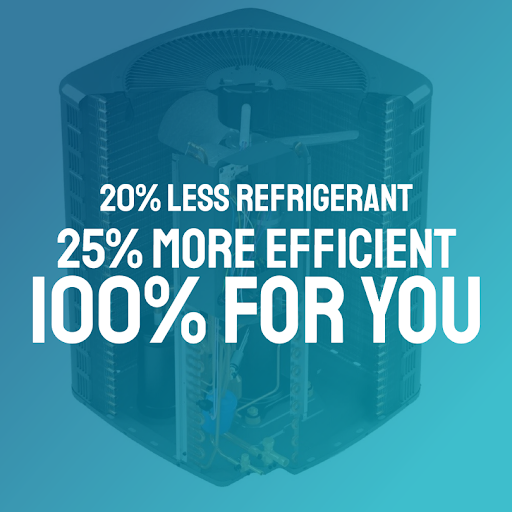As energy efficiency becomes increasingly important in the HVAC industry, the adoption of innovative refrigerants like R32 is driving a revolution in system performance and sustainability. R32 offers numerous advantages over traditional refrigerants, including improved energy efficiency, lower environmental impact, and compliance with stringent regulations. In this blog post, we'll explore the advantages of R32 in HVAC systems and how it is revolutionizing the industry's approach to energy efficiency.
Higher Energy Efficiency Ratings:
One of the key advantages of R32 is its higher energy efficiency compared to traditional refrigerants like R410A. R32 has a higher volumetric cooling capacity, meaning it can absorb and release heat more efficiently. This increased efficiency translates to lower energy consumption and reduced operating costs for HVAC systems using R32 refrigerant. By upgrading to R32-based systems, homeowners and businesses can enjoy enhanced comfort while saving money on their energy bills.
Reduced Environmental Impact:
In addition to its energy efficiency benefits, R32 also offers a lower environmental impact compared to traditional refrigerants. With a significantly lower global warming potential (GWP), R32 contributes less to climate change and ozone depletion over its lifecycle. By choosing R32-based HVAC systems, consumers can reduce their carbon footprint and help protect the environment for future generations.

Discover Top-Grade Air Conditioners: View Our Products Today
The transition to R32 is also driven by regulatory changes aimed at reducing greenhouse gas emissions and promoting environmental sustainability. Governments around the world are implementing stricter regulations on the use of high-GWP refrigerants, making R32 a preferred choice for HVAC manufacturers and users seeking compliance with these regulations. By adopting R32-based systems, stakeholders in the HVAC industry can ensure regulatory compliance and avoid penalties for using environmentally harmful refrigerants.
Optimized System Performance:
R32-based HVAC systems offer optimized performance compared to systems using traditional refrigerants. R32 has favorable thermodynamic properties that improve system efficiency and reliability, resulting in better overall performance and comfort for building occupants. With its superior heat transfer capabilities, R32 enables HVAC systems to operate more effectively even in extreme weather conditions, providing consistent and reliable cooling and heating year-round.
Innovation and Future-Proofing:
By embracing R32, HVAC manufacturers are driving innovation and future-proofing their product lines against evolving industry trends and regulatory requirements. R32-based systems are at the forefront of technological advancements in refrigeration and air conditioning, offering advanced features and capabilities that enhance comfort, efficiency, and sustainability. By investing in R32 technology, manufacturers are positioning themselves for long-term success in a rapidly changing market landscape.
In conclusion, the advantages of R32 in HVAC systems are clear: higher energy efficiency, reduced environmental impact, compliance with regulations, optimized system performance, and future-proofing against industry trends. As the energy efficiency revolution continues to gain momentum, R32 stands out as a leading solution for achieving sustainable and environmentally friendly cooling and heating. By embracing R32-based technologies, stakeholders in the HVAC industry can drive innovation, reduce energy consumption, and promote a greener future for generations to come. If you’re looking for an R32 product coming soon we suggest the Goodman 3 Ton 16.4 SEER2 R32 Air Conditioner Condenser.







